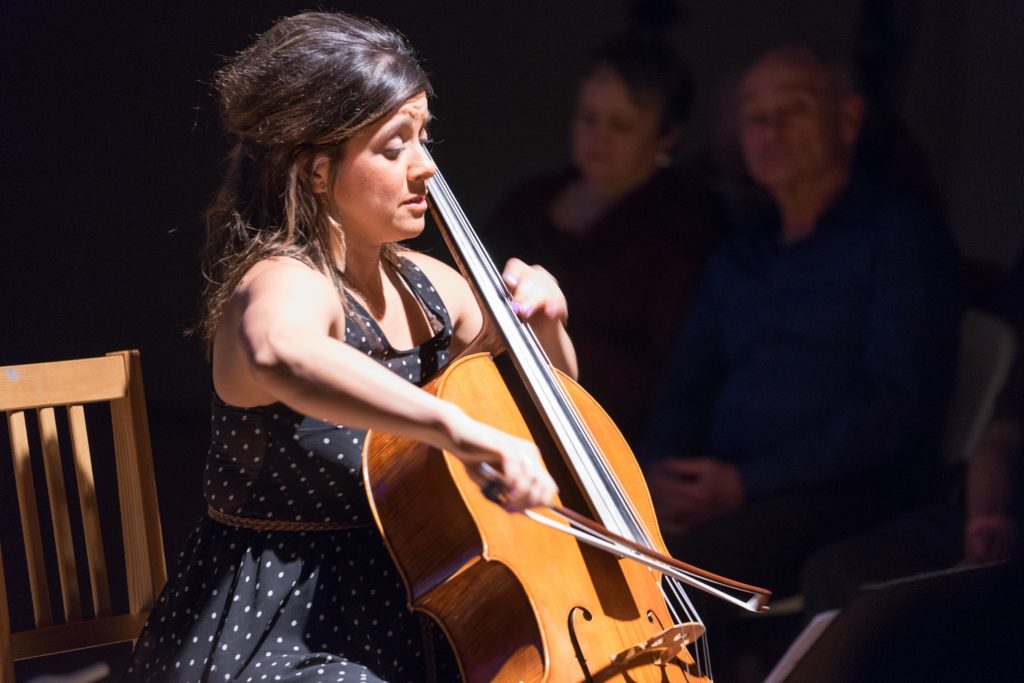
Cellist Marilyn DeOliveira performs Christina Rusnak’s Glacier Blue. Photo courtesy Jacob Wade and Third Angle New Music.
Editor’s Note: Composer Christina Rusnak, a member of the Landscape Music Composers Network, writes her third illuminating essay for Landscape Music.

Christina Rusnak
While composing a recent commission for the new music ensemble Third Angle, I began to consider how the requirements and aesthetics of the commissioning organization impact the creation of landscape music. In a pre-concert talk I attended a few years ago, Steven Stucky pointed out that frames are a good thing; otherwise, our choices would be limitless. For most of my years as an emerging composer, however, I worked without frames—except for the contexts of landscapes themselves. As I hiked, researched, and experienced the various facets of a particular place, the scaffolding of a piece would emerge. Continue reading
